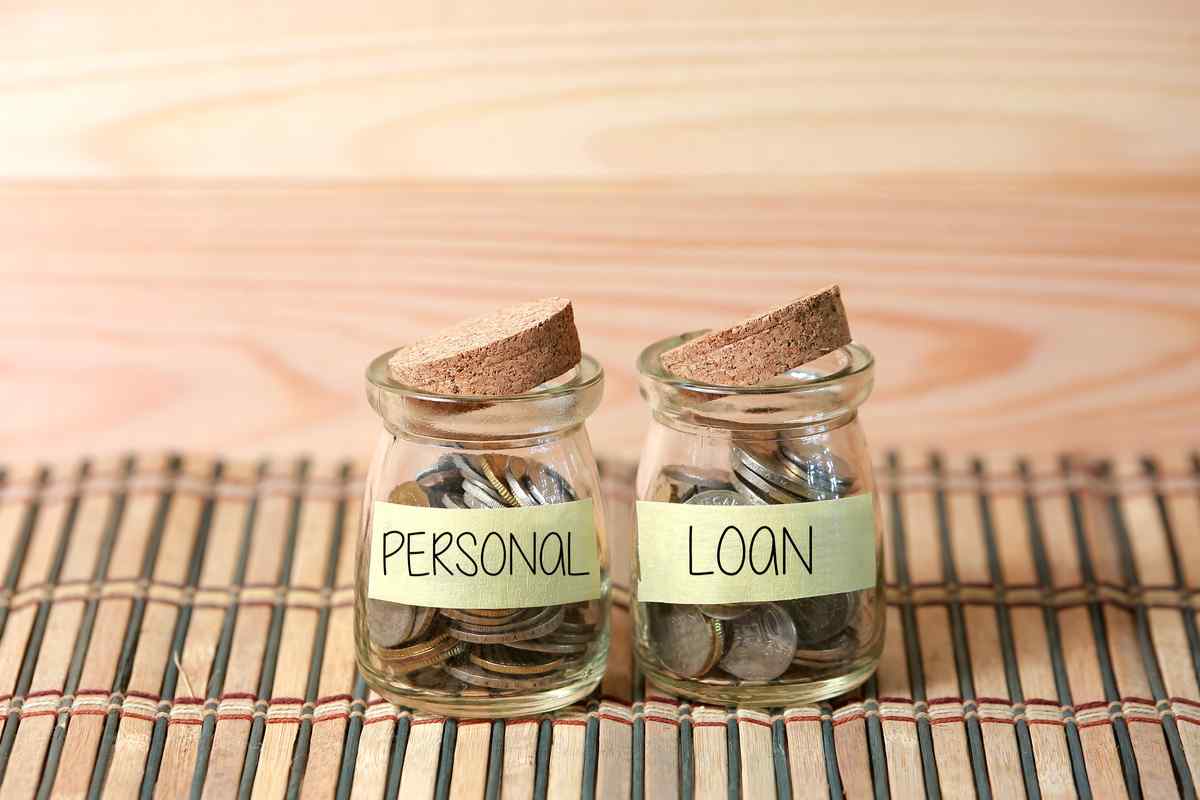Fix-and-Flip Loans for Beginners
Investing in real estate is one of the most effective ways to build wealth. Fixing and flipping a rental property is just one way a real estate investor does that.
Real estate sellers have an advantage in a seller's market. This happens when the supply of houses cannot meet the demand of active buyers. In other words, more buyers are looking for homes than homes are for sale. In addition, property values are up. Some experts expect this trend to continue into the foreseeable future.
Despite a pandemic and economic downturn, there's no better time to fix and flip a home. But to fix and flip, you'll need a house flipping loan; likely, you won't want to pay out of pocket for a sky-high renovation cost or purchase price.
Read on to learn more about what fixing and flipping a home entails, how much it will cost you, and find tips for getting a fix and flip loan.
What is Fix-and-Flip?

Fixing and flipping is the practice of purchasing homes for a low price, fixing them up, then selling them for a profit. There are many ways people go about fixing and flipping houses; some hire professionals to do the heavy lifting, repairs, and marketing for them, while others prefer to handle the entire process from start to finish. Most fix-and-flippers fall somewhere in between.
Before you begin flipping, though, there are a few things you should know about and questions to ask yourself.
You'll need two things before you can start flipping effectively: know-how and fix-and-flip funding. Of course, it also doesn't hurt to obtain a real estate license or contractor's license, depending on how hands-on you want to be with the marketing and renovating aspects of house flipping.
There are a plethora of costs associated with flipping even the most bare-bones home. You can expect to pay around $3,000 in holding costs alone. If you're planning on doing a large-scale renovation on a particularly distressed property, you'll have even more to finance. The renovations themselves could cost anywhere from $5,000 to hundreds of thousands.
If you can't afford to pay for a flip upfront, you're not alone. In 2019, 43.8% of flipped houses were financed with a flip loan.
When it comes to finding a flipping loan, you have a few options. Whether you're working with a conventional lender, private money, or experienced investors, the loan process will be slightly different for each loan program.
Fix-and-Flip vs. Traditional Home Loans
Before you flip a home, you'll want to make sure you have adequate funds to finish the job. There are various kinds of loans you can obtain to renovate a home, each with varying interest rates, terms, and requirements. Consider the difference between fix-and-flip loans vs. traditional loans when deciding which one is the right fit for your situation.
| Fix-and Flip Loans | Traditional Home Loans | |
| Duration | six to 18 months | 15 to 30 years |
| Interest | 12% to 18% | 2% to 4% |
| Purpose | short-term investment | long-term residence |
| Collateral | property itself | property itself and borrower's credit score |
Bank Loan
Most flippers approach banks and credit unions first because, as a traditional lender, banks often offer the best rates. They are seen as experienced investors, and many people trust their flip financing. The average annual percentage rate, or APR, on a bank loan is 9.41%, though it ranges from 6% to 36%, depending on the borrower's credit score and financial history. A bank loan is still a short-term loan, but they are typically harder to get than other types of loans because established financial institutions often have stricter requirements and can afford to be picky in who they choose to work with. Of all the flip lending options on this list, this is the most conventional loan and is a go-to for experienced investors in commercial real estate.
Hard Money Loan
A hard money fix is a prevalent loan for fix-and-flip expenses (and real estate purchases in general). They are short-term, secured loans, meaning they are guaranteed using property, for example, rental property. A hard money lender can get you money quickly, and the funding frame is short. However, just like other types of secured loans, like car title loans, the lender has the right to seize your collateral if you default on the hard money loan. This may be a drawback, but for many, it's worth the accessibility and wide availability of hard money loans. A fix-and-flip lender like a hard money lender is generally much more accessible to people of diverse credit histories because they don't rely on your credit score as much as the property's value set as collateral.
Personal Loan
Many private house flipping lenders offer personal loans to cover the cost of flipping a house. These loans are considered small-dollar and come with short terms. Like hard money loans, they are a similarly quick funding source and often do not require stellar credit. However, they tend to be far more expensive than bank or credit union loans. APR for personal loans is rarely below 36% and can soar up to nearly 700%. A private lender may also tack on private money fees like an origination fee on top of interest rate. Of course, this depends on how personal loans from private lenders are regulated in your state. Private money lending is more expensive in some parts of the country than in others.
Crowdfunding/Peer-to-Peer Lending
While a less conventional financing option, crowdfunding (also called peer-to-peer lending) is one way of financing a fix-and-flip. Peer-to-peer lending is usually done online. Crowdfunding websites connect borrowers directly to lenders, who are individual investors looking to make a higher return on their money. For this reason, it is an investment loan. The lender-investor sets their own rates and terms. This is a relatively new concept but one that many investors have jumped on.
Here's another tip for finding fix-and-flip loans: if you know anyone else in the business, ask them how they get their financing. The sheer volume of loans available can be overwhelming, not to mention time-consuming to sort through. Your colleagues might have real estate investing connections that can take out much of the legwork for you in finding a loan officer that offers rehab loans.
The Benefits of Fix-and-Flip Loans
The following may be some reasons you choose to go with a fix-and-flip loan vs. a traditional bank loan:
Fast Funding
You'll likely want to expedite the escrow process so you can get to work fixing, flipping, and selling the property. Unfortunately, bank loans are usually lengthy processes that require lots of paperwork and requirements. Luckily, fix-and-flip loans can be a quicker alternative, offering approved applicants funding in a couple of weeks.
Variety of Properties
When applying for a bank loan, the property will need to meet certain criteria. As a result, the bank will likely want to conduct an inspection or appraisal of the property before issuing the loan. Not only can this slow down the funding process, but it can also result in denials if the property does not meet the bank's requirements. With fix-and-flip loans, the type of property may not be an obstacle in receiving the loan.
Less Risk
Should you default on a traditional loan, your property will likely be foreclosed on and your credit score damaged. Not only do you lose your home, but you also diminish your chances of qualifying for another property due to your lowered score. With a fix-and-flip loan, you are not jeopardizing your credit rating.
Common Home Flipping Costs
Which funding option you choose will likely be determined, in part, by how much money you need. We can break down common expenses into two categories: essential and nonessential. Here we define essential expenses as costs that cannot be avoided no matter what type of property you buy or financing you receive. Essential expenses include the initial purchase of the property, property taxes, property insurance, utilities, and closing costs.
You will probably accumulate additional costs on top of these when factoring in the rehab costs of your investment property. After all, if you're flipping a house, it's assumed you're leaving it better than you found it.
You'll want to factor in these other costs:
- Short term capital gains tax rates
- Cost of labor
- Cosmetic, nonessential repairs
Renovations
Renovations are the biggest wild card. That's because there are a lot of factors at play in a renovation. The property's current condition, the quality of material, and the contractor you employ all play a role in how expensive a renovation will be. That's not to mention any surprise expenses that come up as the process evolves.
Certain types of renovation can also be considered an essential expense. For instance, repairing structural damage that would otherwise make the house unsafe to live in.
It's always a safe bet to hire a general contractor to give you an estimate of rehab costs to get the property in good enough condition to sell.
Short Term Capital Gains Tax Rate
The short-term capital gains tax rate is a tax you pay on properties flipped within one year or less. This tax rate ranges from 10% to 37%, depending on your income tax bracket. The short-term capital gains rate usually matches about 5% of the property's initial purchase price. Add to that closing costs, which will be about another 5% of the purchase price. So already, you're paying an additional 10% of what it cost you to buy the property in the first place.
Cost of Labor
Unless you're truly a jack of all trades, chances are you're going to need to hire professionals to handle part (or all) of the renovations. Not only will you need to pay for the manual labor itself, but you may also have to pay for equipment, licenses, and permits to make renovations and the cost of delivery for parts and equipment.
In addition to manual laborers and a general contractor, it's highly advisable to hire a real estate agent.
Real estate agents are experts in all aspects of selling a home, from marketing to closing the sale. If you do not want to hire a real estate agent, you'll have to obtain your own license in real estate.
Questions to Ask Before You Flip
You should ask yourself a few important questions before you decide to flip a house. Be sure to do your research and ask yourself these questions before moving forward with such a big project.
1. Do I Have the Time, Energy, and Patience?
House-flipping is not an easy feat. It requires patience, time, and lots of mental and physical energy. If you are not ready to make this commitment, it is best to revisit the idea when you feel you can.

Perhaps the number one question you should ask yourself is whether you can commit to all the blood, sweat, and tears that go into flipping a house. On average, it takes 180 days to flip a house. The typical timeline for flipping is:
- Initial property purchase (1-2 months)
- Renovations (2-3 months)
- Property sale (1-2 months)
Of course, this depends on how much work the house needs and whether there are any kinks in the process, such as a late equipment delivery or unanticipated repairs.
2. How Much Experience Do I Have in Home Improvement and Real Estate?

Luckily, if the answer is "not much," you can hire various professionals to do the work for you. For example, a general contractor, manual laborer, and real estate agent can aid you with the aspects of flipping you don't want to handle yourself. The great thing about flipping houses is that you have the autonomy to choose how hands-on you want to be.
You can always seek advice from advanced flippers and real estate agents. An experienced flipper knows what to look for in a home. They have a good sense of what is selling on the market and whether they can get the house in good enough condition to profit from it.
3. Do I Qualify for Fix-and-Flip Financing?
None of your plans will be possible without the necessary funding. Unless you're willing and able to pay out of pocket for all the costs that go into flipping a home, you'll need to find financing before you take the leap.
If you have an excellent credit history, finding funding probably won't be excessively difficult. If your credit score has suffered over the years, though, or you don't have any credit at all, finding a loan will be more difficult. Luckily, there are loans available for just this situation.
It's worth noting that lenders might be wary of giving you a loan if this is your first time flipping a house.
How to Get a Personal Loan

If you don't qualify for bank loans or hard money loans, a short-term loan might be your next best option. Please note that short-term funding is not nearly large enough to fund the purchasing of a home. Instead, this cash source can be used to pay off emergency expenses that may creep up during the remodeling process.
Short-term loans are offered through direct lenders. They offer quick funding and short repayment terms. However, in exchange for their accessibility and speed, they come with a high APR. Small-dollar personal loans can be found online or in person at a cash advance storefront.
There are a few different types of personal loans. There are unsecured loans, such as cash advances and installment loans, and secured loans, such as car title loans. Unsecured loans are generally easier to get if your credit is good. They do not require you to use collateral. Secured loans, on the other hand, do.
The standard repayment term for a payday loan is two weeks or 14 days from the borrower's last paycheck. They are paid off in one lump sum on the loan's deadline.
Meanwhile, installment loans are paid in small increments across several months. The typical term for an installment loan is two months, but it may reach up to a year.
The application process is often quick and easy, with some consumers receiving their money in as soon as one to two business days. During the application process, lenders will usually ask for some basic information such as:
- Valid government-issued ID
- Proof of income
- Social Security number
- Bank account information
The above items are standard for any type of personal loan you apply for, whether a cash advance, installment loan or car title loan. Lenders may have additional requirements, such as meeting a certain credit threshold.
If you're approved for a loan, the lender will extend a loan offer. For the loan to be valid, you'll be required to sign the contract. A loan contract is a legally binding agreement between you and the lender, so be sure to read it carefully, taking note of the APR, interest rate, and loan term, as well as any additional fees.
Sum Up
If you’ve answered the three questions above and have determined that house flipping is for you, then now is the time to start, as the market goes in cycles. Right now is as good a time as ever to get into the house flip game since it’s a seller’s market.
Expect that flipping a house won't be easy as a beginner, so starting with a small-scale project may be best. Your safest bet may be to buy a home in good condition as-is at a high acquisition price and make small-scale improvements.





